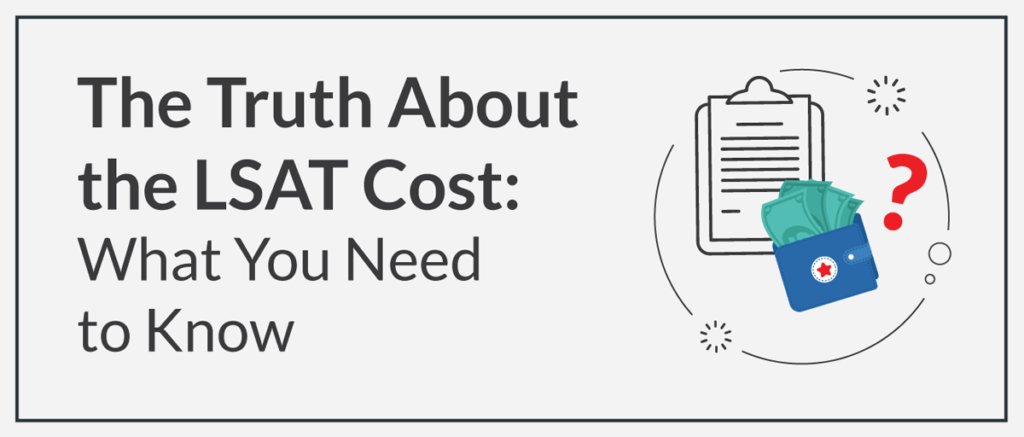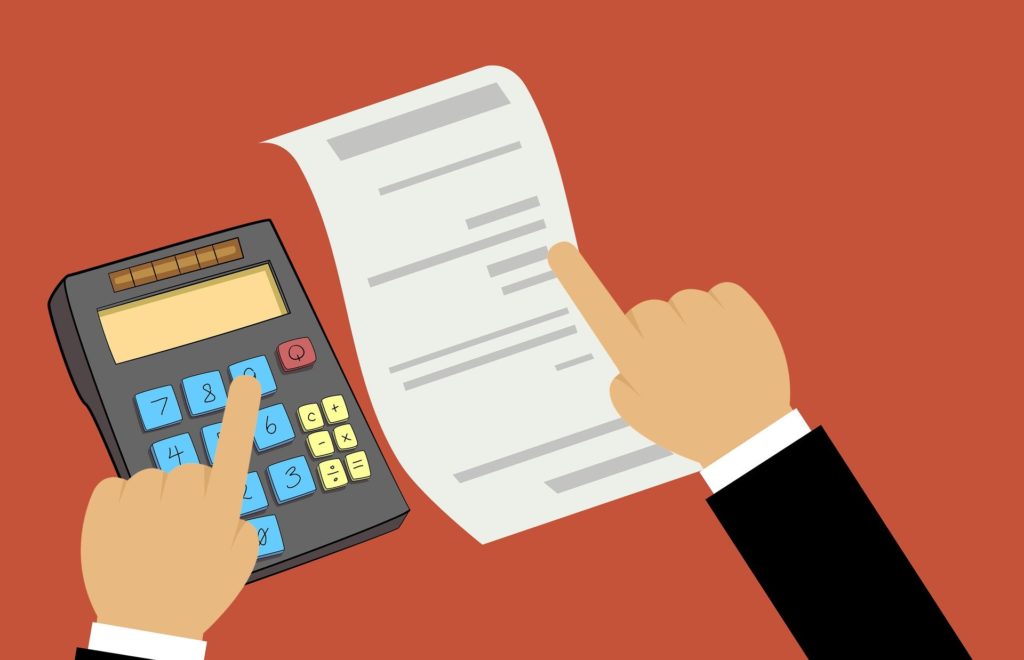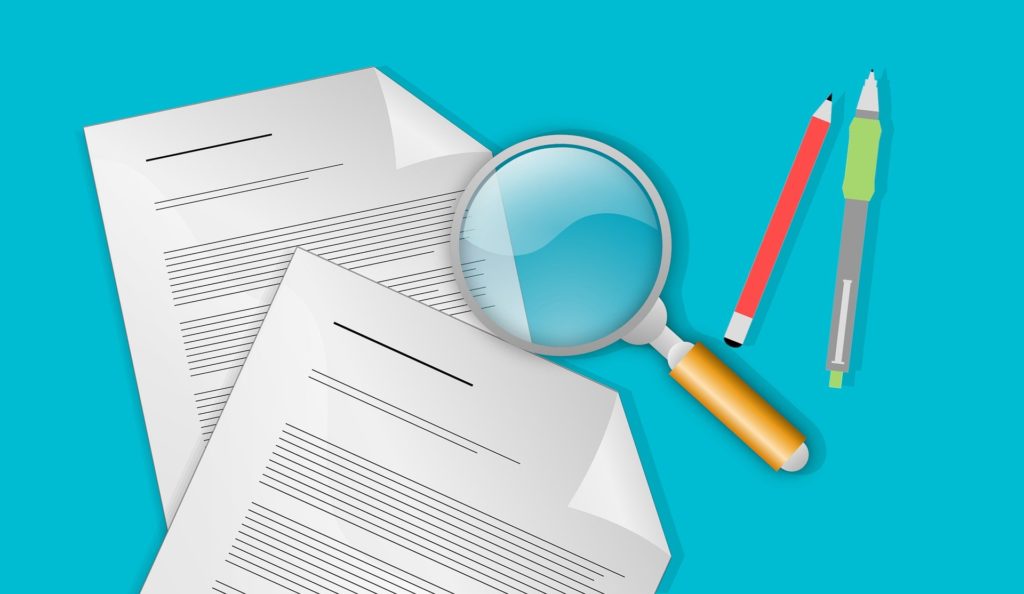It does cost money to take the LSAT, and you’ll need to be prepared to cover a variety of fees. The truth of the matter is that it can be relatively expensive, though it’s a necessary cost if you want to go to law school.

There are several fees that make up the total LSAT cost, beyond the initial $200 registration fee to take the test. You will pay LSAT fees to take the test and get a score report, plus some other expenses to apply to the best law schools. On top of those, any extenuating circumstances can incur additional costs.
That’s without including an LSAT prep course or LSAT prep books.
How hard is the LSAT? Very hard. If you have to retake it, that’s yet another expense.
Here’s a thorough breakdown of all the possible fees you may need to pay when you take the test, get your score report, and send in your test scores to law schools.
Originally published on June 8th, 2020, this article was updated, fact-checked, and republished on July 5th, 2022.
LSAT Costs and Fees

There are a few basic categories of fees. The LSAT registration cost and LSAT test costs are the first investments you’ll make.
The prices are set by and paid to the Law School Admission Council (LSAC). Here is a breakdown of the charges.
| Product | Fee | What You Get |
| LSAT registration cost (includes LSAT writing) | $215 | This is the flat registration fee that will reserve your spot to take the LSAT. |
| Credential Assembly Service (CAS) | $195 | CAS is part of the application process to get into a law school. You pay for an account to have all of your law school reports, transcript summaries, authenticated academic records, and letters of recommendation processed and sent directly to law schools. |
| Law School Report | $45 | This is part of your CAS. A Law School Report will have to be purchased for each law school that you apply to. |
| Single-Report Package: LSAT Writing, CAS, one Law School Report | $430 | This is the smaller version of a reporting package. You’ll get one copy of your LSAT writing sample, one CAS service, and one Law School Report. |
| Six-Report Package: LSAT Writing, CAS, six Law School Reports | $650 | If you are applying to multiple law schools, this package includes enough materials to send in six separate applications. |
| LSAT Writing (standalone) | $15 | This is how much it will cost to get a single copy of your LSAT writing sample. |
Auxiliary LSAT Fees

In addition to costs around your actual test and reporting, there are a few additional fees you may have to pay.
| Service | Fee | What You Get |
| Test Center Change | No cost, $135, or $215 | Before the administration’s registration deadline, you can request a test date change free of charge. However, up to 10 days after the registration deadline, you will pay $135. Eleven day after the administration deadline, you need to pay $215.If there is available space and you are within the deadline, you can change the location of the test center where you initially registered to take the LSAT. |
| Handscoring | $100 | This can be requested within 40 days to verify or correct your machine scored results. |
| Nonpublished Test Center: | Candidates who live more than 100 miles from a published test center may request to take the LSAT at a nonpublished test center. This must be approved and will include the fees listed below. | |
| Domestic | $295 | |
| International | $290 |
LSAC Refund

In the event that you register for the LSAT or a Credential Assembly Service (CAS) and your plans change, you may be able to receive a refund from LSAC.
The fees for both are only partially refundable. You must request partial refunds either by mail or by scanning the LSAT Refund Request Form.
There are some caveats to getting an LSAC refund. For example, you cannot get even a partial refund on:
- Test date change
- Test center change
- Nonpublished test center
- Handscoring
The most you can get back for either the LSAT registration fee or the CAS registration is $50 each. Be sure to check the LSAC website for info about an LSAT waitlist refund and the LSAT refund deadline.
LSAT Fee Waiver

The LSAT Fee Waiver is available for candidates who can’t afford to pay, and there are now two tiers for evaluating the scope of the waiver. To qualify for either tier, you must first meet eligibility criteria for citizenship and residency status, extending to the following:
- U.S. or Canadian citizens, or
- U.S. nationals, or
- Residents of either the Republic of the Marshall Islands (RFI), the Federated States of Micronesia (FSM), or the Republic of Palau, or
- Permanent resident aliens of the U.S. with an Alien Registration Receipt Card (I–151 or I–551), or
- Those with temporary protected status in the U.S., or
- Those with granted deferred action under Deferred Action for Childhood Arrivals (DACA), or
- Those who have applied for deferred action under DACA, or
- Permanent residents of Canada, or
- Protected Persons/Convention Refugees in Canada
The second component of eligibility pertains to financial information.
For the Tier 1 fee waiver package, you likely need to be an independent candidate earning up to 250% of the federal poverty guidelines or a dependent applicant may be eligible for the Tier 1 fee waiver package if your income does not exceed 150% of the federal poverty guidelines, and if your income combined with your parents’ income does not exceed 300% of the federal poverty guidelines.
For Tier 2, you likely need to be an independent candidate earning between 250% and 300% of the poverty guidelines or a dependent applicant whose income does not exceed 200% of the poverty guidelines, and whose income combined with your parents’ income is between 300-350% of the poverty guidelines.
These latest fee waiver criteria also include maximum asset and cash balance levels, and the LSAC can consider other factors at its discretion.
If you intend to apply for a fee waiver, you will need to apply online and support your application with documentation of your financial information.
If approved, the following fees would be waived, depending on which tier you qualify for:
- Two LSAT tests (within a two-year period)
- One LSAT Writing
- One CAS registration
- Letter of Recommendation Service
- Six CAS Law School Reports
- One year of access to LSAC’s test prep
Example of LSAT Cost
So, how much does the LSAT cost? Here is an illustration of the steps and associated fees.
- Pick one of the seven LSAT test dates
- Register for the LSAT: $215
- Pay for the CAS: $195
- Buy Law School Reports: $45 per school
Six is an average number of law schools a typical candidate applies to. If you had no test changes or additional fees, this process would cost $680.
The practice of law is a prestigious and high-earning career. If you want to pursue it, you will have to take the right steps. Part of the cost and process of becoming a lawyer is studying for and passing the LSAT.
Your best bet is to take an LSAT review course that gives you the most comprehensive study experience. To learn more about your options, check out the best online LSAT prep courses.
LSAT Fee FAQs
Here are answers to some common questions about LSAT fees and cost.
How Much Does the LSAT Cost in 2022?
The LSAT will cost the average student about $2150. This is for the most basic services and doesn’t include additional scoring reports, handscoring, or any auxiliary costs.
Can I Take the LSAT For Free?
If you are unable to pay for the LSAT, you may apply for a fee waiver through LSAC. You can learn more about this online here.
Can Anyone Take the LSAT?
There are no prerequisites to take the LSAT. This means that virtually anyone can take the exam. However, it is a very difficult test, and will require intensive study and a good LSAT study schedule to pass.
How Much Do LSAT Prep Courses Cost?
LSAT prep courses vary significantly in terms of what they offer. You can buy supplements for specific areas, in-person classes, or app-based programs. Depending on what you want, you will pay between $600 and $1200.
How Much Does it Cost to Retake Just the Multiple Choice Portion of the LSAT?
If you need to retake the multiple choice portion of the LSAT, you will have to pay the full $215. There is no discount for not retaking the writing portion.

Leave a Reply